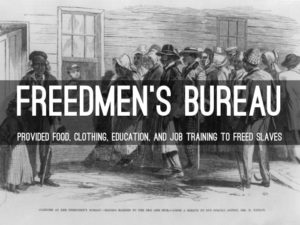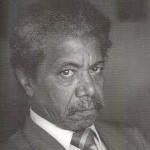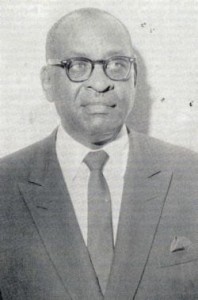How Martin Luther King Jr. and Motown Saved the Sound of the Civil Rights Movement
Photo: Martin Luther King, Jr. with Berry Gordy, actress Lena Horne, and musician Billy Taylor, in August 1963 at a Southern Christian Leadership Conference benefit program in Atlanta, Georgia. (Courtesy Motown Museum)
(Time.com) You know Martin Luther King Jr.’s “I Have a Dream” speech. Or at least you think you know it—you’ve read about it in textbooks, or heard politicians quote from it, or seen clips in classrooms or museums.
But chances are, you haven’t heard the full 17-minute address from the March on Washington for Jobs and Freedom, and what you have heard failed to capture what made it the one of the most famous speeches in history. Even if you wanted to, despite its renown, it’s surprisingly hard to find. Online clips are removed swiftly, and those that evade detection crackle with white noise.
But this month, there will be a new way to hear the speech. TIME is releasing The March, a virtual reality experience that takes participants back to that day in August 1963. The experience uses original audio, available in rare fidelity thanks to an unlikely source: Motown Records. In its recording, King’s clarion voice carries without the distracting echo picked up by inferior attempts to capture it. Spectators on the steps of the Lincoln Memorial chime in audibly as King proceeds through his remarks, making listeners feel as if they’re 10 ft. from the podium. Crucially, the recording, which is also slated for rerelease for audiences today, challenges long-held notions about that day—and its story reveals King’s struggles over how best to share his words with the world. (more)
White House Nominates Nation’s 1st African American Military Service Chief

Gen. CQ Brown, Jr. attends a briefing by Air Commodore Rob Chipman at Royal Australian Air Force (RAAF) Base, Williamstown, Australia, Aug. 9, 2018. (U.S. Air Force/Staff Sgt. Hailey Haux)
(Military.com) The White House has nominated Gen. Charles “CQ” Brown, a San Antonio, Texas native, to be the next top general to lead the U.S. Air Force. The nomination, announced by the Defense Department Monday (March 2, 2020) afternoon, would make him the first African American officer to serve as the top uniformed officer for any of the military branches.
The Wall Street Journal first reported Monday that Brown, currently the head of Pacific Air Forces, would be tapped for 22nd Air Force chief of staff, following Gen. David Goldfein, who is set to retire this summer after four years in the position. Brown would also be the first black officer to sit on the Joint Chiefs of Staff since then-Army Gen. Colin Powell served as chairman between 1989 and 1993.
“The [Air Force] will be well served by the formidable talents of CQ Brown,” Air Force Secretary Barbara Barrett said in a tweet following the announcement. “He has unmatched strategic vision and operational expertise. His leadership will be instrumental as the service continues to focus on the capabilities and talent we need to implement the [National Defense Strategy].” (more)
Save the date, call for presentations! 2020 Aya Symposium at PVAMU
K-12 Texas educators attending the event will receive 7 CPE credits!
 Following on the success of last year’s event, the 2020 Aya Symposium, in association with the Texas Purple Hull Pea Festival, is set for Friday, June 5, at Prairie View A&M University. As last year, the event will be hosted by the Texas Institute for the Preservation of History and Culture located in the School of Architecture.
Following on the success of last year’s event, the 2020 Aya Symposium, in association with the Texas Purple Hull Pea Festival, is set for Friday, June 5, at Prairie View A&M University. As last year, the event will be hosted by the Texas Institute for the Preservation of History and Culture located in the School of Architecture.
This year’s theme is: “Making Us Count: Reclaiming the Texas Freedom Colony Legacies of Activism and Engagement in 2020.”
“Being counted” in 2020 – both on the census roles and in the voting booth – is of generational import. This year’s symposium will guide attendees in exploring the role of Texas freedom colonies – throughout history, and into the present – in “Making Us Count” through, protesting, educating, voting, and other methods of community organizing and civic engagement to insure that the voices of Black Texans are heard.
Call for Presentations
We are looking for dynamic and engaging speakers who have the expertise to enlighten and motivate attendees. For submission guidelines, symposium registration, and other information, please click here. Proposals are due Friday, March 27 and selected presenters will be notified no later than Friday, April 17, 2020.
TIPHC Bookshelf
 Published scholarship on black history in Texas is growing and we’d like to share with you some suggested readings, both current and past, from some of the preeminent history scholars in Texas and beyond. We invite you to take a look at our bookshelf page – including a featured selection – and check back as the list grows. A different selection will be featured each week. We welcome suggestions and reviews. This week, we offer, “Michael Ray Charles, A Retrospective,” by Cherise Smith.
Published scholarship on black history in Texas is growing and we’d like to share with you some suggested readings, both current and past, from some of the preeminent history scholars in Texas and beyond. We invite you to take a look at our bookshelf page – including a featured selection – and check back as the list grows. A different selection will be featured each week. We welcome suggestions and reviews. This week, we offer, “Michael Ray Charles, A Retrospective,” by Cherise Smith.
Michael Ray Charles is the most comprehensive presentation yet of the work of an artist who rose to prominence in the 1990s for works that engaged American stereotypes of African Americans. With a background in advertising and an archivist’s inquisitiveness, Charles developed an artistic practice that made startling use of found images and offered critiques of the narratives they fostered. Immersing readers in the imagination of this daring painter, Michael Ray Charles celebrates and contextualizes a singular, major figure in the art world.
Art historian Cherise Smith collaborated with the artist to curate nearly one hundred color plates documenting nearly thirty years of visual art. These plates are framed by an interview with the artist and by Smith’s own deep interpretive essay on Charles’s work. Smith explores topics ranging from the controversy resulting from Charles’s provocative appropriations of stereotypical racial material to his techniques of sampling from popular culture, and from his commentaries on African American men and sports to his work with director Spike Lee on Bamboozled. Both clear-eyed and complex, this retrospective demonstrates the significant role that Michael Ray Charles’s work has played in defining what art is today.
This Week in Texas Black History
Mar. 3
 On this date in 1865, the Freedmen’s Bureau Bill was passed by the U.S. Congress. The Bureau of Refugees, Freedmen, and Abandoned Lands, better known as the Freedmen’s Bureau, was a branch of the U.S. Army created to provide practical aid to 4,000,000 newly freed Black Americans in their transition from slavery to freedom. The agency also helped whites left homeless by the Civil War. The Freedmen’s Bureau operated in Texas from late September 1865 until July 1870.
On this date in 1865, the Freedmen’s Bureau Bill was passed by the U.S. Congress. The Bureau of Refugees, Freedmen, and Abandoned Lands, better known as the Freedmen’s Bureau, was a branch of the U.S. Army created to provide practical aid to 4,000,000 newly freed Black Americans in their transition from slavery to freedom. The agency also helped whites left homeless by the Civil War. The Freedmen’s Bureau operated in Texas from late September 1865 until July 1870.
Mar. 4

In 1960, on this day, students from Texas Southern University, led by Eldrewey Stearns, held Houston’s first sit-in protest at a Weingarten grocery store lunch counter. This protest introduced a new aspect in the struggle for equal rights in Houston and helped dismantle segregation in the city. By Aug. 25, 1960, supermarkets, drugstores and hotels had desegregated.
Mar. 6

On this day in 1972, basketball star Shaquille O’Neal was born in Newark, New Jersey. His father was a U.S. Army sergeant and O’Neal spent part of his childhood in Germany, but began standing out on the basketball court at Cole Junior-Senior High School in San Antonio. In 1989, O’Neal led Cole to the 3A state championship and was named national high school Player of the Year. O’Neal played collegiality at Louisiana State University where he was a two-time All-American, two-time Southeastern Conference Player of the Year, and received the Adolph Rupp Trophy as college basketball’s player of the year in 1991. He played professionally for 19 seasons and won a combined four world championships with the Los Angeles Lakers and Miami Heat. With the Orlando Magic, O’Neal was the league’s Rookie of the Year for the 1992-93 season. O’Neal’s individual accolades include the 1999–2000 MVP award, 15 All-Star game selections, three All-Star Game MVP awards, three Finals MVP awards, two scoring titles, 14 All-NBA team selections, and three NBA All-Defensive Team selections. He is one of only three players to win NBA MVP, All-Star game MVP and Finals MVP awards in the same year (2000). He was elected into the Naismith Memorial Basketball Hall of Fame in 2016 and to the College Basketball Hall of Fame in 2014.
Mar. 6

Civil Rights activist Dr. Lonnie Smith died on this day in 1971. A native of Yoakum, Smith started a dental practice in Galveston in 1925 after graduating from Meharry Medical College in Nashville. He attempted to vote in the 1940 Democratic Primary but was denied a ballot at his Houston precinct because voting in was open only to whites. The NAACP Legal Defense Fund almost immediately filed a lawsuit in U.S. District Court in Houston demanding redress based upon the denial of 14th and 15th Amendment rights of Smith by the precinct election judge S. S. Allwright. The initial federal court judgment favored Allwright, but the NAACP appealed all the way to the U.S. Supreme Court. Thurgood Marshall, the lead NAACP attorney successfully argued the case before the high court. In an 8-1 ruling the Supreme Court on April 3, 1944 found that in states conducting a single-party primary, that primary is “public” rather than “private” and therefore protected by the Constitution. The ruling opened primary voting to all eligible Texans.
Mar. 7

On this day in 1942, the first cadets graduated from flying school at Tuskegee, Alabama. In June 1943, the first squadron of black aviators, the 99th Pursuit Squadron, flew its first combat mission, strafing enemy positions on the Italian Island of Pantelleria. Overall, there were 32 Texans who graduated from the school between 1942 and 1946 and flew as Tuskegee pilots, and many others from Texas who served in support groups – mechanics, administration, etc.
Blog: Ron Goodwin, Ph.D., author, PVAMU history professor
Ron Goodwin is an assistant professor of history at Prairie View A&M University. Even though he was a military “brat,” he still considers San Antonio home. Like his father and brother, Ron joined the U.S. Air Force and while enlisted received his undergraduate degree from Texas Lutheran University in Seguin, Texas. After his honorable discharge, he completed graduate degrees from Texas Southern University. Goodwin’s book, Blacks in Houston, is a pictorial history of Houston’s black community. His most recent book, Remembering the Days of Sorrow, examines the institution of slavery in Texas from the perspective of the New Deal’s Slave Narratives.
Recent Posts
November 2020
So, impeachment has come and gone. Bernie Sanders is still a democratic socialist and no one will let Michael Bloomberg forget “stop and frisk.” The political season is in full bloom and for the next ten months or so we’re going to be inundated with political punditry and opinions about what will happen if…(more)]
Worried?
I have a confession. I’m a worrier. But I don’t worry if the Dallas Cowboys or the Houston Texans will make the playoffs, I worry about my family’s health and well being. Right now I’m especially worried about my mother and one of my brothers-in-law. Both are dealing with issues that I pray daily about. And I know I’m not supposed to worry, the Good Book teaches that if the Provider takes care of the…(more)
Submissions wanted
Historians, scholars, students, lend us your…writings. Help us produce the most comprehensive documentation ever undertaken for the African American experience in Texas. We encourage you to contribute items about people, places, events, issues, politics/legislation, sports, entertainment, religion, etc., as general entries or essays. Our documentation is wide-ranging and diverse, and you may research and write about the subject of your interest or, to start, please consult our list of suggested biographical entries and see submission guidelines. However, all topics must be approved by TIPHC editors before beginning your research/writing.
We welcome your questions or comments. Please contact Michael Hurd, Director of TIPHC, at mdhurd@pvamu.edu.

